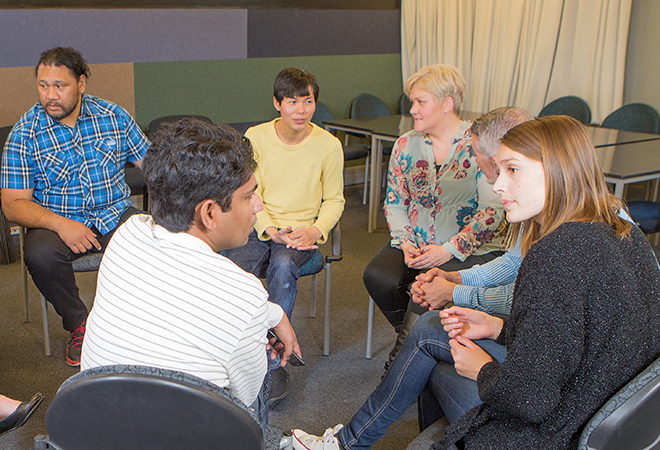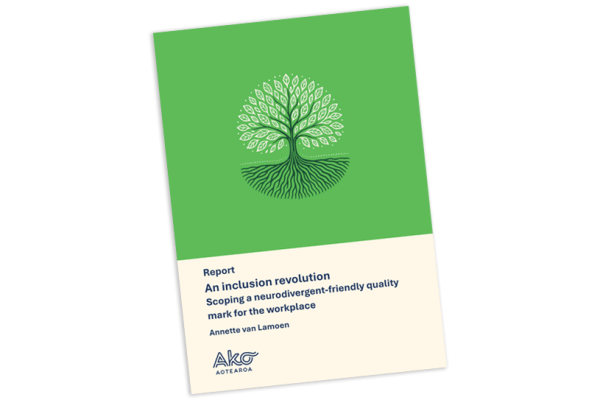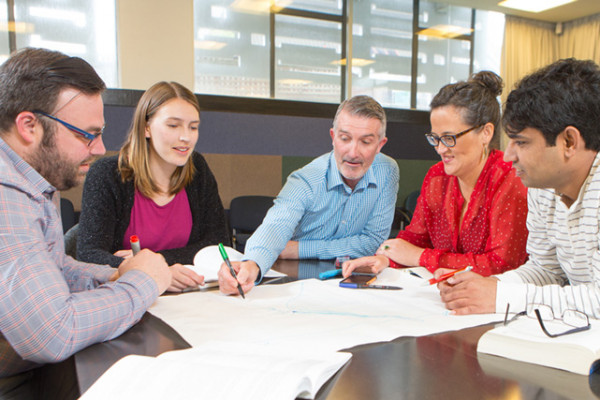What is neurodiversity and neurodivergence?
What is neurodiversity/neurodivergence?
Neurodiversity acknowledges the fact that the brain is different in every individual, and every brain processes information differently. As the concept of diversity applies to groups of people, generally the term ‘neurodiversity’ is used for groups of people and ‘neurodivergent’ for individuals.
A person can be said to be neurotypical if their mind conforms to what is constructed as 'normal' in their society.
A person can be said to be neurodivergent if their mind functions differently from the dominant societal standards of normal.
Studies suggest that approximately 15 to 20% of the population is neurodivergent. The extent to which this will impact individuals’ everyday lives and educational experiences can vary.
Neurodivergencies are often co-occurring or co-existing. People may have: ADHD and dyslexia, dyslexia and Irlen Syndrome, ADHD and autism, or any other combination.
Learning difficulties/differences and neurodisability are terms that are sometimes used in place of neurodivergence.
Neurodivergence can be broadly grouped under the categories of innate and acquired.
Innate neurodivergence is present from birth and therefore generally experienced as an inseparable part of personhood. It includes (but is not limited to) dyslexia, dyspraxia, dyscalculia, dysgraphia, autism, foetal alcohol spectrum disorder and attention deficit/hyperactivity disorder.
Acquired neurodivergence can develop at any time of life as part of a health condition, injury, drug use, trauma, stressful life events, or the side effects of medication. Acquired neurodivergence may be episodic or temporary. Examples of acquired neurodivergence include (but are not limited to) mood disorders, anxiety disorders, Alzheimer’s, schizophrenia, and traumatic brain injury.
Supporting Neurodivergent Learners in Tertiary Education: A Call to Action for Educators and Policymakers
Supporting neurodivergent learners is a crucial aspect of creating an inclusive education system in Aotearoa New Zealand. Neurodivergent learners can possess distinct strengths, including critical and analytical thinking, adaptive problem-solving, creativity, ideation, and pattern identification; however, they may also encounter challenges during their learning journey.
Our latest blog post has tips for supporting neurodivergent learners
Common types of neurodivergence
The descriptions below have been sourced from the Tertiary Education Commission (TEC), Inclusive Education | Te Kete Ipurangi (TKI) from the Ministry of Education (MoE), and other New Zealand support websites.
Neurodivergent learners may have distinct strengths, such as critical thinking and analysis, problem-solving, creativity, ideation, identifying patterns, and active learning strategies, but may also experience challenges during their learning journey, such as those described below.
Dyslexia
A brain-based, persistent learning difference, characterised by problems with reading, writing and spelling due to a deficit within the language system at the phonological level. Dyslexia is often associated with difficulties in concentration, verbal short-term memory, organisation and verbal processing speed.
Dyslexic difficulties exist on a continuum and can be experienced to various degrees of severity. It also frequently co-occurs with one or more other developmental difficulties, including dyscalculia, ADHD, and developmental coordination disorder.
Dyslexia information and resources on the Tertiary Education Commission website
Recent research:
The Delphi Dyslexia Study (published at the end of February 2025) concludes with a proposed new definition of dyslexia.
Toward a consensus on dyslexia: findings from a Delphi study - Carroll - Journal of Child Psychology and Psychiatry - Wiley Online Library
Autism
Autism refers to a broad range of conditions characterised by challenges with social skills, repetitive behaviours, and low awareness of social norms. It is a lifelong neurodevelopmental disorder which affects the ways that people perceive the world, think and behave, and how they communicate and interact with others. Autism is a spectrum, this means that some people are affected more than others. Other terms to describe autism include Autism Spectrum Disorder (ASD) and Asperger's Syndrome.
Information and resources on the AltogetherAutism website
Supporting autistic tertiary learners (six guides for tertiary educators)
ADHD
ADHD stands for Attention Deficit Hyperactivity Disorder. It is a neurodevelopmental disorder that impacts the part of our brain that helps us to plan, control impulses and execute tasks. ADHD is marked by an ongoing pattern of inattention and/or hyperactivity-impulsivity that interferes with functioning or development.
Information and resources on the ADHD NZ website
Dyscalculia
Dyscalculia is sometimes incorrectly referred to as the ‘maths version of dyslexia’, yet the differences between the two are vast. Dyscalculia impacts how individuals process magnitude, numbers, and eventually arithmetic problems. Symptoms range from difficulty with counting and basic mental math to trouble with telling time and direction. People with Dyscalculia often have no idea about quantities.
Dyscalsulia resources and information on the Tertiary education commission website
The Dyscalculator – A calculator for learners with dyscalculia
Dyspraxia / DCD
Dyspraxia also known as Developmental Coordination Disorder (DCD) is a neurological condition which can present in a similar way to other types of neurodiversity, but has a different basis and underlying cause. Dyspraxia is a chronic condition beginning in childhood that causes difficulties with motor (movement) skills and coordination. It often shows up as clumsiness. Dyspraxia may affect up to 5% of the population.
Information and resources on the Dyspraxia support group of NZ website
Dysgraphia
Dysgraphia involves difficulty with the act of writing. Difficulties can range from issues with physically writing words to issues with organising and expressing thoughts in written form.
Information and links on the Education Hub website
Irlen Syndrome
Irlen Syndrome is a perceptual processing disorder that affects the brain's ability to process visual information because of light sensitivity. People with Irlen Syndrome often find reading
black text on a white background challenging.
Information about Irlen syndrome and the links to autism on the Altogether Autism website

How does fostering learner agency help neurodivergent individuals?
Learner agency is the art of purposefully navigating through your own learning journey.
For teachers and tertiary support staff, fostering learner agency might involve supporting learners to take greater control of their educational journey. To help them develop their own personal learning strategies that make their learning more enjoyable, engaging, and effective.
Developing agency within neurodivergent learners is essential in helping them to feel a sense of ownership over their learning.
Independence can be nurtured within neurodivergent learners by providing choice and flexibility in regards to their learning and can begin very simply with opportunities such as choosing between activities or the type of book they would like to read (Cook & Rao, 2018).
Agency can also be developed by encouraging learners to set their own goals and targets for learning, building insight into their own strengths and weaknesses, monitoring their own progress and effectively communicating with teachers or peers when they feel they need help (Hart & Brehm, 2013).
When neurodiverse learners feel a sense of belonging, they are more likely to actively participate and engage with their learning.
Read more about fostering Learner Agency on our Blog
Developing Learner Agency Educator Pathway
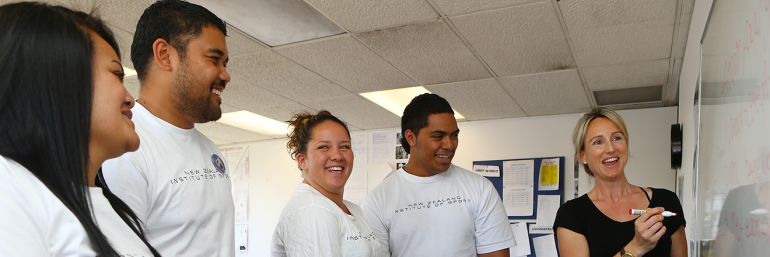
Universal Design for Learning (UDL)
Universal Design for Learning is a framework to support educators in creating flexible and inclusive learning opportunities to meet the diverse needs of all learners.
It is about anticipating and removing barriers to learning when planning your teaching, rather than waiting for obstacles to arise.
Read a comprehensive guide to Universal Design for Learning (UDL) on our Blog
Universal Design for Learning Educator Pathway
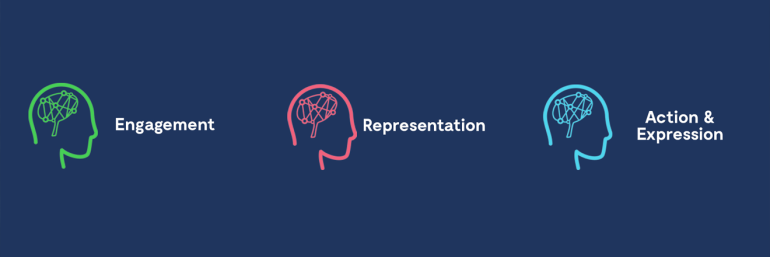
Further support for neurodivergent individuals
While there is growing recognition of neurodiversity across society, and a greater appreciation of how neurodivergence can impact people’s lives – both positively and negatively – the current provision for neurodivergent people (and their whānau) through education systems and other supporting services still has room to grow.
When aiming to support neurodivergent individuals (both learners and tertiary staff) in the tertiary sector, organisations could seek to identify and minimise a person’s challenges whilst maximising the strengths associated with neurodivergent traits and conditions.
Interviews with neurodivergent learners often show they want their teachers to have access to professional development on neurodiversity, primarily focusing on creating more understanding and empathy, as well as teaching educators ways to better support their neurodivergent learners.
Further reading | The experiences of neurodivergent children and those supporting them in Aotearoa New Zealand’s education system
This report has collected the perspectives and experiences of 2,400 people engaged with neurodivergent young people – parents and whānau, teachers and education leaders, people working in support services, and neurodivergent tamariki themselves.
Further reading | Responding to neurodiversity in the education context: An integrative literature review
This literature review was commissioned by the New Zealand Ministry of Education. The review explored research and other resources in an attempt to identify new or innovative strategies or approaches related to the learning support required by neurodiverse learners.
An inclusion revolution: Scoping a neurodivergent-friendly quality mark for the workplace
![]() This research project was designed to investigate how a ‘Neurodivergent-Friendly Quality Mark’ can support workplaces in Aotearoa New Zealand to be more accommodating to the needs of neurodivergent staff, and attract people with diverse skillsets and perspectives to enhance innovation, creativity, and productivity.
This research project was designed to investigate how a ‘Neurodivergent-Friendly Quality Mark’ can support workplaces in Aotearoa New Zealand to be more accommodating to the needs of neurodivergent staff, and attract people with diverse skillsets and perspectives to enhance innovation, creativity, and productivity.
